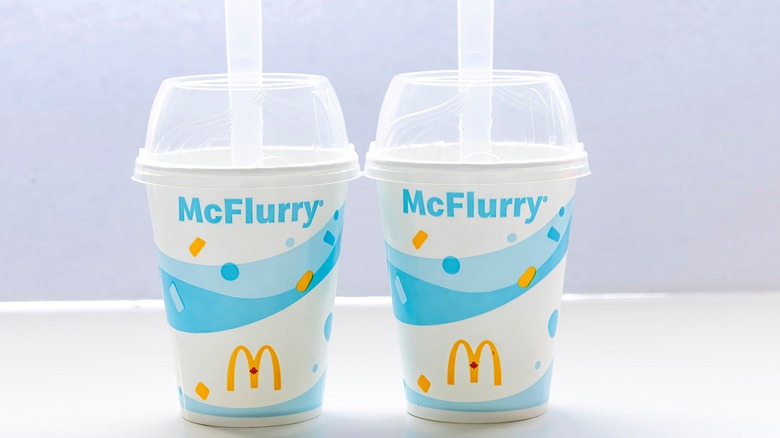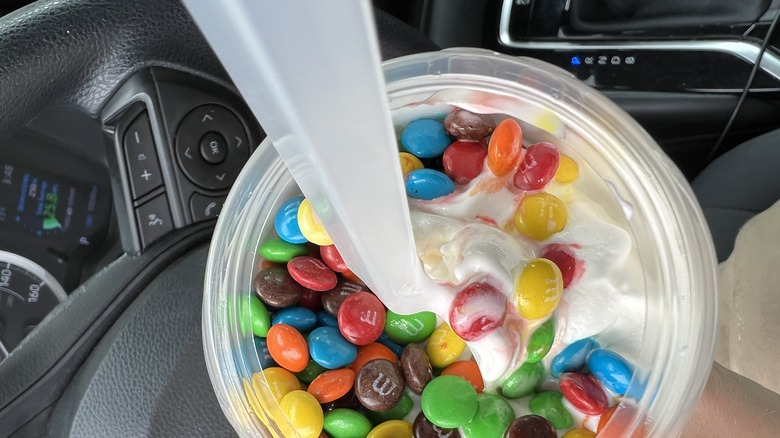Why McDonald's Is Saying Goodbye To Its Current McFlurry Spoons
If you've ever ordered a McFlurry before, then you already know the familiar scene: You grab your frozen creamy treat, mixed with solid bits of mini M&Ms or Oreo cookies. Scooping out all those crunchy mix-ins is a hefty job, and it requires a hefty tool — the iconic McDonald's McFlurry spoon. It's a thick clear plastic shovel of a utensil. But, now, the burger giant is waving goodbye to its McFlurry spoon and redirecting toward a more sustainable route.
Moving forward, McFlurries will be served with the same spoon currently used with McDonald's sundaes, a smaller black spoon, reports Nation's Restaurant News. Not only will the spoon swap be a change for McFlurry fans, but it'll be an even larger adjustment for employees. That square, hollow handle on the old McFlurry spoon served a functional purpose (and it wasn't a straw, as some fans theorized). The handle was attached to an arm on the McFlurry-making machine and acted as a spindle for mixing all those M&Ms and other candies into the soft serve. According to an official press release from McDonald's, this nationwide shift will entail making McFlurries with reusable spindles that can be removed for cleaning while a new one takes its place. This simple spoon swap minimizes the chain's plastic use while minimizing changes to the McFlurry-eating experience for foodies.
A treat you can feel extra good about
This development marks another step in a larger shift toward sustainability for the Golden Arches. In January of this year, McDonald's began testing new strawless lids, making progress toward its long-term goal: Sourcing 100% of its guest packaging from recycled materials. Roughly 81% of McDonald's packaging had already transitioned to renewable mediums by the end of 2022, and over 85% of restaurants implemented bins for guests to recycle packaged items.
The war on plastic has officially been waged, and arguably the top fast-food giant in the world is not alone. Starbucks totally eliminated plastic straws in 2020. Now, tea brands are using compostable bags, and multiple states across the country have already banned plastic grocery bags. Brands from Whole Foods to Evian and Red Lobster are cracking down on single-use plastics.
Consumer behavior has accounted for a substantial portion of the unrecycled items observed in recent years. In 2021, only around 5% of the 40 million tons of plastic waste produced in the U.S. was actually recycled. At least 85% went to landfills, as only one in five discarded items was actually in the proper condition to be recycled. Strides like the new McFlurry spoon could help remove this impasse by simply reusing more of its plastic.

